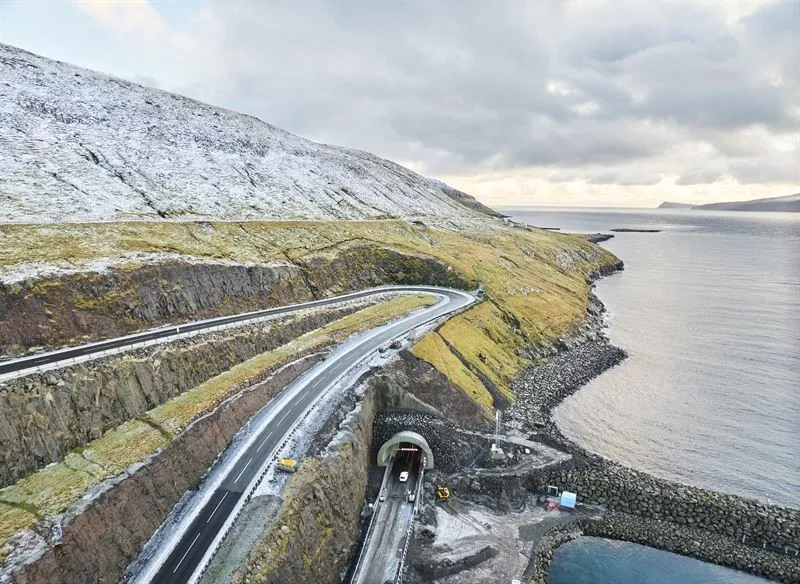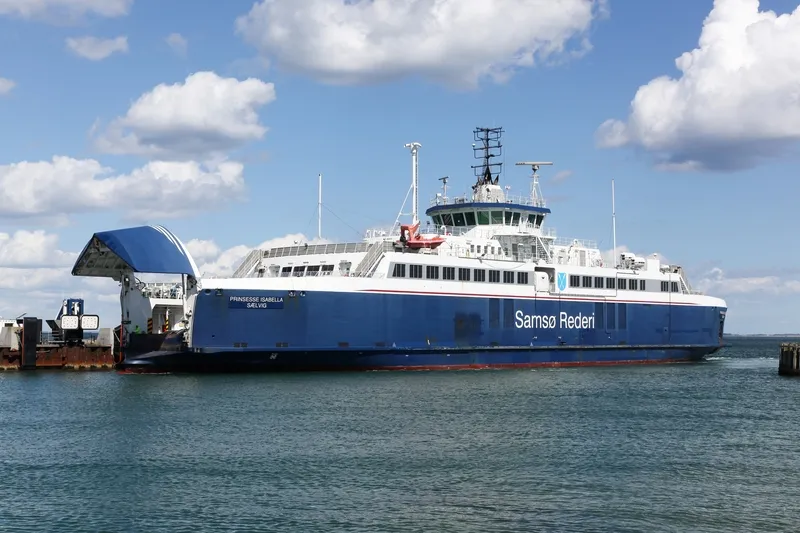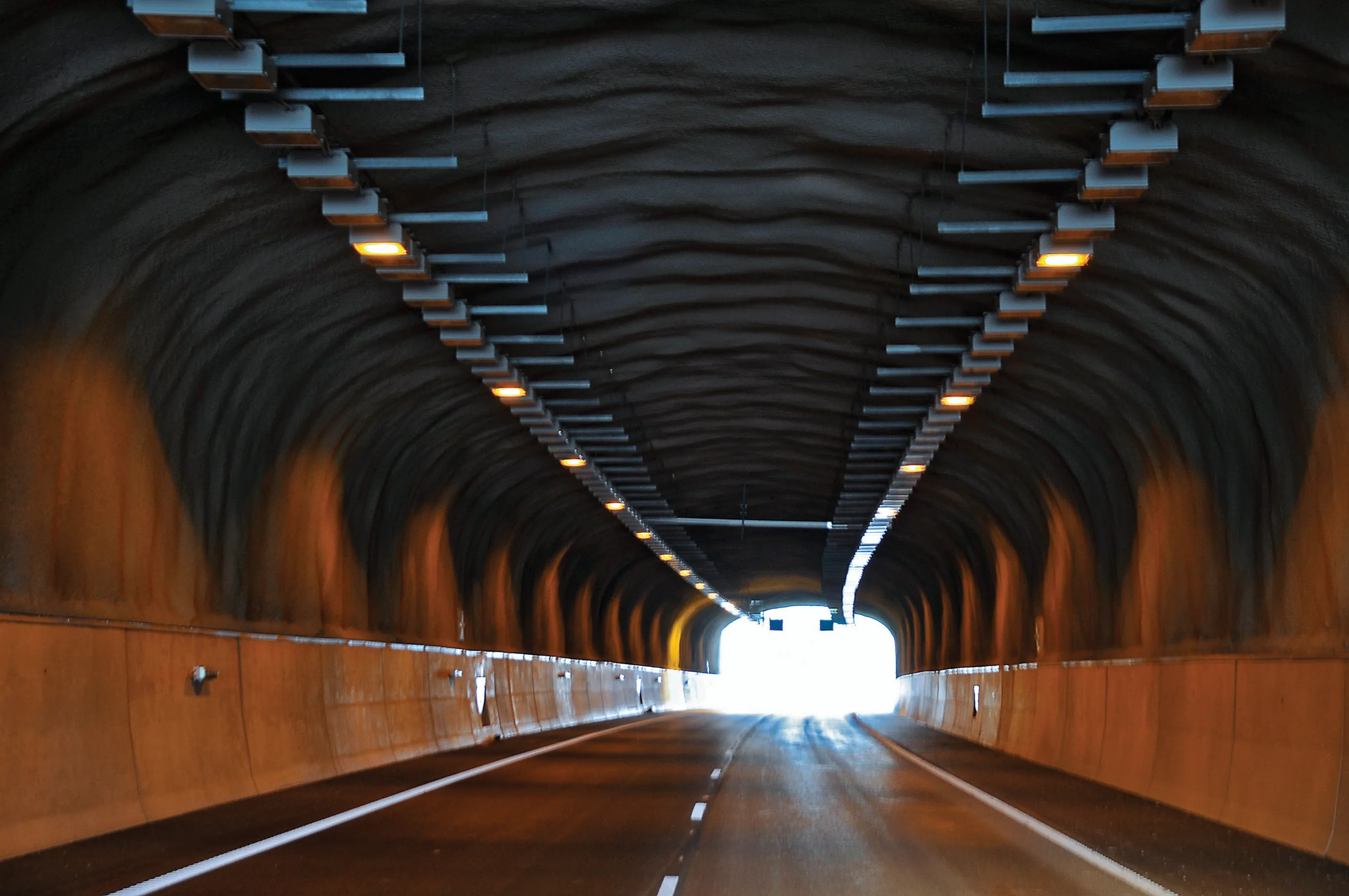
Drivers in the Faroe Islands were using the recently opened Sandoy Tunnel for free for the first 23 days of operation.
The 10.8km-long tunnel connecting the islands of Streymoy and Sandoy opened in mid-December and is the longest subsea tunnel in the Faroe Islands and one of the longest in the world, according to the island group’s ministry of transport. The contractor, Swedish infra group NCC, notes that the tunnel is 9.5m wide and has a lowest point at 147m with a gradient of 5%,
The Sandoy Tunnel crosses the Skopunarfjørður – the strait between Sandoy and Streymoy islands – connecting the port of Gamlarætt on Streymoy to Traðardalur in central Sandoy, south of Streymoy Island. Ferry service between Gamlarætt on Streymoy and Skopun on Sandoy has now been cancelled.
Construction began on both sides of the project in June 2019 and the two teams met in February 2022. The cost of Sandoyartunnilin has been around US$127 million.
"The tunnel offers the best of both worlds,” said the Faroe Island prime minister Aksel Johannesen during the opening ceremony. “Access to the vibrancy of city life and the tranquillity of small village communities.”
Some financing for construction and operation of the Sandoy Tunnel will come from toll revenue from the 11.4km-long Eysturoyartunnilin that opened in December 2019. It links Streymoy and Eysturoy islands and has 10 times the estimated traffic that is likely to use Sandoy Tunnel.
The Faroes government tunnel operator P/F Tunnil has estimated that 300–400 vehicles per day will use the Sandoy Tunnel. Average daily ridership of the ferry route was 195 vehicles.
Meanwhile, work continues by the Czech construction firm Metrostav on a 1.2km tunnel on Suðuroy Island to connect the villages of Fámjin and Ørðavík. Less than 90 people live in the area but the road connection has been poor and often closed during bad weather.








